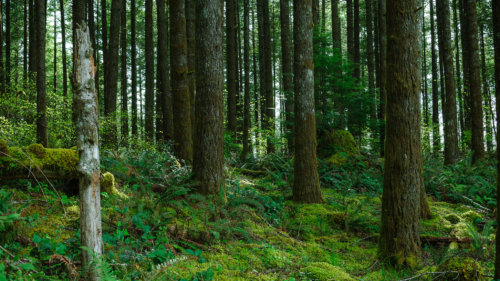Meet The New Wildlife Watchdogs
If you’ve ever bought a product with a small green logo blending a checkmark and a tree in the corner (like [easyazon_link identifier=”B01AFRSQGW” locale=”US” tag=”gardcoll03-20″]Cotonelle[/easyazon_link] or Staples recycled copy paper), then you’re familiar with the Forest Stewardship Council. The Forest Stewardship Council (FSC) is a global non-profit that takes an economic approach to conservation, by trying to spur more informed consumer choices. They work with non-profits (like Greenpeace) and businesses alike to encourage products that are ethically-sourced and made according to social, environmental, and economic concerns. A certification from FSC adds a premium to a given product by ensuring a number of responsible considerations towards the land and its people (for example, an FSC certification ensures that workers receive a fair wage and use appropriately protective equipment).
At a time when the American president-elect believes climate change is a hoax, anything is better than nothing. This is an important global initiative that will enable more responsible forest management by industries, plantations, and smallholders alike.
The most recent pilot program from the FSC hinges on the idea of ecosystem services— that is, those ‘abstract’ values the land provides, which fall outside the purview of a traditional colonial, industrial perspective. Rather than calculating worth simply in terms of timber, fodder, and other forest products that form the building blocks of capitalist trade, the land is weighed with biodiversity, water, leisure, forest carbon, beauty, and soil conservation in mind. Always balancing economy with social and environmental concerns, the idea is to reward companies for conducting their business in such a way as to preserve these more subtle economically viable resources; the ForCES program specifically targets emerging markets, finding ways to adapt the FSC standards to those particular arenas. By the end of the 2017, when the pilot concludes, the FSC’s goal is to have the demonstration sites certified, and have a system for “targeting key ecosystem services that have market potential”.
While the specifics differ within the four countries chosen for the test program, each of the ten sites assesses the market value of different ecosystem services and contributes to the creation of a rubric for monitoring ecosystem services. Participation has its benefits, long term environmental health being chief among them. But to incentivize participants in the here and now, the FSC offers Payments for Environmental Services (PECs), which compensate local communities and are comprised of payments that are either made by companies to reimburse destruction or by governments to prevent land degradation.
Of course, nothing is ever perfect. The FSC has seen its fair share of controversy and it’s hardly ideal that so many industries still rely heavily on the land. Like carbon offsetting, there’s also a concern that regardless of financial reimbursement for damage done, at the end of the day, the destruction to the land is (ultimately) irreparable. But at a time when the American president-elect believes climate change is a hoax, anything is better than nothing. “This is an important global initiative to enable more responsible forest management by industries, plantations, and smallholders,” UN Environment ecosystems expert Max Zieren told the United Nations Environmental Program. At a time of year when gratitude for what we have is at the fore, it’s important to remember those other, less obvious sources of life– the ones we all enjoy and (most of all) need.
Read more about the Forest Stewardship Council here.



































